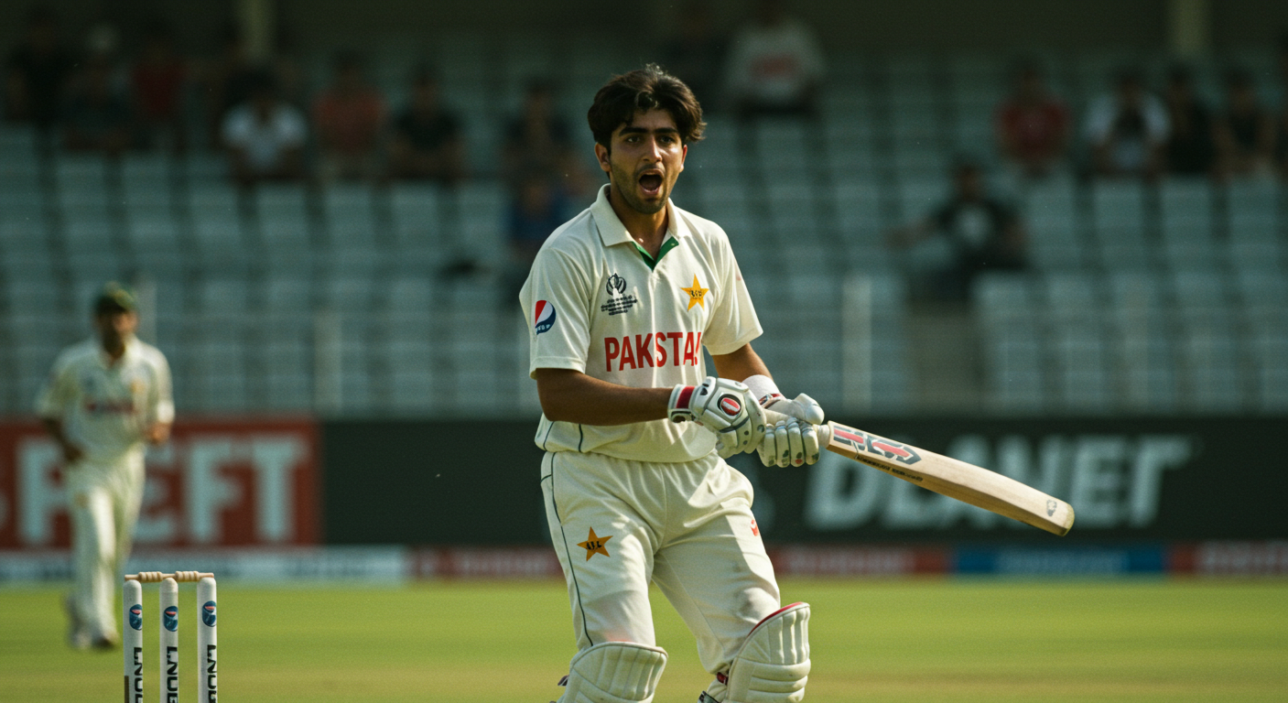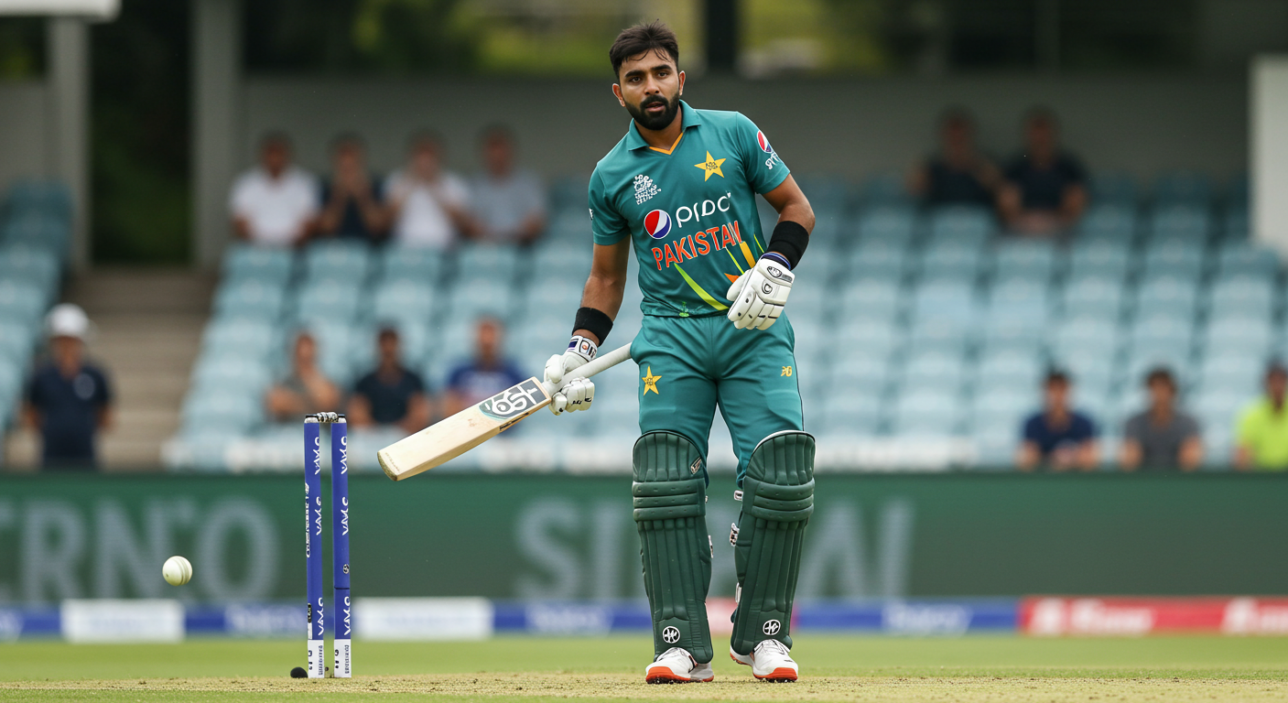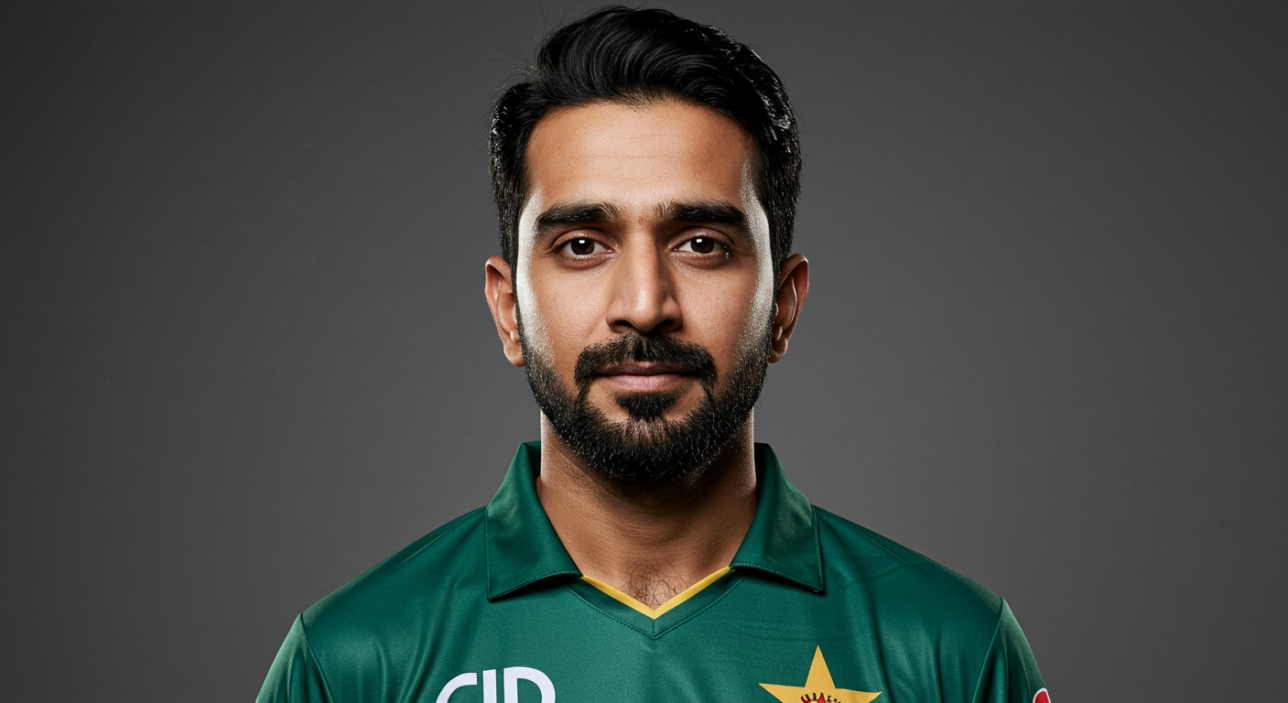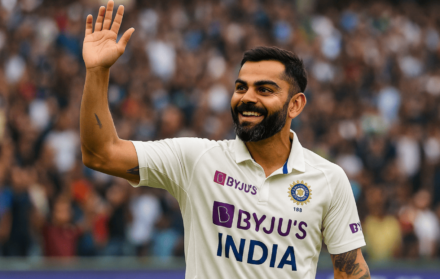
Sikandar Raza: The Veteran Lifting Zimbabwe into the Spotlight
Zimbabwean cricket hasn’t lacked for talent over the years—it’s lacked oxygen. Forgotten by broadcasters, excluded from major tournaments, and racked by administrative chaos, it’s a system that has suffocated even its brightest prospects. Yet somehow, in his mid-30s, Sikandar Raza has made the international game pay attention again.
He’s not a prodigy. He didn’t emerge from academy circuits or dominate U-19 headlines. He arrived through exile, graft, and delay—only debuting in his late twenties. But what makes Raza’s story magnetic is not the detour—it’s the defiance. He plays like a man not trying to impress, but trying to rescue.
In an era where most players peak in their early thirties and then fade into the franchise churn, Raza has gone the other way. He’s raised his game as the stakes around him have shrunk. He’s scoring runs, taking wickets, and dragging Zimbabwe back into matches they have no business being in. And in doing so, he’s making a forgotten cricketing nation feel relevant again.
This article explores how one player—through sheer persistence, hybrid skillsets, and tactical sharpness—has become the spine of a side once seen as soft. It’s not just about stats. It’s about presence. It’s about how a veteran, without excuses, has refused to let Zimbabwe sink quietly.
1. From Refugee Roots to Reluctant Hope

Born in Sialkot, Pakistan, and moving to Zimbabwe for education, Sikandar Raza’s journey into international cricket wasn’t scripted—it was stitched together. He didn’t grow up dreaming of wearing the red helmet. In fact, he didn’t even qualify to play for Zimbabwe until well into adulthood, after years of red tape and reinvention.
Initially, he wanted to be a fighter pilot—until an eye defect closed that door. His pivot to cricket was born not of obsession, but opportunity. It would be years before that choice bore fruit. Early on, Raza was inconsistent—flashes of elegance, but little permanence. He floated in and out of Zimbabwe’s line-up as the team descended into obscurity and financial ruin.
But something shifted around 2021. Perhaps it was age. Perhaps it was perspective. Whatever it was, Raza returned to the international scene with fire—not flair. He didn’t just want to play well—he wanted to take responsibility. His batting grew more adaptable. His off-spin more calculated. And his voice in the dressing room louder.
What separates Raza now isn’t just his skillset—it’s his edge. He bats like he knows there won’t be another era, another chance. He bowls like every over matters. In an unstable cricketing ecosystem, he is the one stable currency. He’s not just Zimbabwe’s best player. He’s their conscience on the field.
For a country that’s long flirted with being written out of the story, Sikandar Raza has ripped up the narrative. He’s not a fairytale. He’s a correction. A player who shouldn’t have made it, now making sure no one forgets the team he’s dragging with him.
2. The All-Rounder Zimbabwe Can’t Replace
Modern white-ball cricket demands flexibility, but very few players provide it without compromise. Sikandar Raza does. Whether Zimbabwe need someone to bat through the middle overs or bowl tight spells in a crunch phase, he’s the player captains turn to—and the one opponents plan for.
Since 2022, Raza’s statistics have gone from decent to indispensable. He scored three ODI centuries in a single calendar year, all while shouldering responsibility in a fragile batting lineup. These weren’t soft hundreds. They came under pressure, in chases, against top-tier bowling attacks. The innings against Bangladesh in Harare, where he rescued Zimbabwe from 62-4 to a thrilling win, wasn’t just one of the year’s best—it was a blueprint on how to win from nowhere.
What sets Raza apart is not just output, but intent. He rotates strike with maturity but isn’t afraid to innovate. He uses the slog sweep and reverse paddle judiciously, not as circus tricks but as pressure-release tools. And with the ball, he’s clever—not a frontline spinner, but a rhythm-breaker. He slides the ball through, varies his pace subtly, and rarely gives the set batter what they want.
Zimbabwe’s rise in recent qualification tournaments has Raza’s fingerprints all over it. Without his all-round contributions, they simply don’t have the depth to compete. This isn’t about a star in a weak team—it’s about a player who amplifies everyone around him.
In a side full of question marks, Raza is the one fixed answer. And at 38, he’s not slowing down. If anything, he’s improving—adding more range to his shot-making, tightening his overs. He’s not just Zimbabwe’s form player.
3. Leading Without the Title

Sikandar Raza is not Zimbabwe’s official captain. But in every way that matters, he leads.
You see it in the way he fields—full-length dives in dead rubbers, boundary patrol like it’s a final. You hear it in the post-match pressers—calm, measured, refusing to throw teammates under the bus even when he’s carried them. And you feel it in the clutch moments—when games get close, and the younger players glance toward him for cues.
There’s a reason coaches like Dave Houghton and captains like Craig Ervine lean so heavily on him. Raza isn’t just experienced—he’s emotionally literate. He understands the psychology of a team that has tasted irrelevance and is terrified of going back. He keeps them grounded when they win, and refuses to let them sulk when they don’t.
Off the field, he’s become Zimbabwe’s ambassador. In ICC meetings, franchise leagues, and even global interviews, Raza champions his country without romanticising it. He’s honest about the chaos but protective of the players trying to rise above it. That duality—truth-telling with loyalty—is rare in modern sport.
During the T20 World Cup in 2022, Raza’s influence went global. His standout performances in Australia—especially the match-winning spell against Pakistan—weren’t just game-turning, they were reputation-altering. Suddenly, Zimbabwe weren’t just a team making up numbers. They had an icon who could bend games, and headlines, their way.
That moment, on the global stage, was years in the making. It wasn’t luck. It was leadership. And Raza did it without a badge. Just with belief.
4. Franchise Stardom Without the Ego
Raza’s rise in T20 leagues wasn’t inevitable. He didn’t burst onto the scene at 20 or command six-figure bids in his first outing. What he did was something far more valuable—he became reliable. And in franchise cricket, reliability pays in the long run.
Since 2022, Raza has quietly become one of the most versatile assets in global leagues. From the Pakistan Super League to the Bangladesh Premier League and even the Indian Premier League, he’s slotted in as a utility cricketer—able to bat in any position, bowl through different phases, and anchor a chase or accelerate in the death.
At Punjab Kings in the IPL, he didn’t play every match. But when he did, he often made his moments count—like that unbeaten 57 off 41 against Lucknow Super Giants that closed out a nervy chase. No histrionics, no wild celebrations. Just execution.
What separates Raza in the franchise ecosystem is his adaptability without ego. He doesn’t complain about roles. He doesn’t chase headlines. And unlike many white-ball mercenaries, he carries his national form into franchise stints—not the other way around.
His performances abroad have also helped shift perceptions. Zimbabwe is no longer seen as a talent wasteland. Scouts and coaches see Raza as proof that international-quality cricketers can emerge from the margins. He’s not just representing Zimbabwe—he’s rebranding it.
And he does it all without forgetting where he comes from. Whether it’s wearing a black armband in solidarity with his nation’s struggles or thanking domestic coaches in post-match interviews, Raza keeps his feet planted, even when the lights are brightest.
5. The Final Act Still Unwritten

Sikandar Raza is in his late 30s, but you wouldn’t know it from how he moves between overs or how fiercely he chases a ball to the rope. Unlike many who enter this phase of their career with caution, he’s playing with a sense of acceleration—as if he’s making up for time lost to bureaucracy, exile, or obscurity.
There’s no farewell tour, no talk of winding down. If anything, his workload is increasing. He’s become Zimbabwe’s heartbeat across all three formats, often playing back-to-back series with barely a breather, then flying out to represent a franchise two days later.
But this isn’t blind slogging. It’s strategic. Raza knows he may be the last of his kind in Zimbabwe for a while—a world-class all-rounder with a global presence and the maturity to guide younger players. And he’s determined to leave something behind, not just in memory, but in infrastructure.
He’s spoken about mentoring roles. About helping create pathways. About using his global platform to shine light back home. If the ICC and Zimbabwe Cricket can harness that, they won’t just be salvaging one career—they’ll be building a legacy off it.
The most poignant part? Raza isn’t doing this out of obligation. He’s doing it because he believes Zimbabwe still has a story worth telling. And while many assumed that story ended a decade ago, he’s out there rewriting the final chapters in real time.
6. When the World Finally Took Notice
For most of his career, Sikandar Raza worked in the shadows—high-performing but under-watched. That changed in October 2022, when Zimbabwe stunned Pakistan in the T20 World Cup. And at the centre of it all? Raza, producing a spell that will live forever in Zimbabwean cricket folklore: 4-0-25-3, including the prized scalps of Shadab Khan and Haider Ali.
It wasn’t just that he bowled brilliantly. It was the timing, the pressure, the theatre. Against a full-strength Pakistani side with championship ambitions, Raza didn’t just compete—he dictated terms. And suddenly, cricket fans who couldn’t name three Zimbabwean players were tweeting his name, learning his story, and asking how someone this good had flown so far under the radar.
Moments like that don’t just shift perception—they create legacy. That win alone didn’t take Zimbabwe through to the next round, but it reinserted the team into the global conversation. Commentators called it the upset of the tournament. Players from other nations began speaking Raza’s name with respect. It was validation. And it was overdue.
What makes that night in Perth significant is that it wasn’t an outlier. It was part of a pattern. In World Cups, qualifiers, and bilateral series, Raza keeps showing up—under lights, under pressure, and under-resourced. Yet, he delivers. And finally, the world is watching.
7. What Zimbabwe Cricket Must Learn From Him

It would be a grave error for Zimbabwe Cricket to see Raza’s success as a one-off. Because it isn’t. It’s proof of what happens when talent meets clarity of purpose.
The lesson isn’t to find another Raza—players like him are rare. The lesson is to build a system that doesn’t require miracles for progress. Raza fought through administrative chaos, lack of funding, and delayed eligibility. The next generation shouldn’t have to.
Infrastructure matters. Contracts matter. A functioning domestic league, youth academies with coaching continuity—these are not luxuries. They’re necessities. And Raza has shown that with even minimal support, elite-level performance is still possible.
But they can’t keep relying on a 38-year-old to do the heavy lifting. Zimbabwe needs to bottle the mindset that Raza brings—commitment, intelligence, pride—and seed it into the grassroots. Because without a long-term plan, his influence may flicker out with his eventual retirement.
For now, though, Raza continues to be the bridge. Between eras. Between expectations and execution. And Zimbabwe would be wise to walk that bridge with him before it’s too late.
Conclusion: Sikandar Raza — The Veteran Lifting Zimbabwe into the Spotlight

Sikandar Raza isn’t just having a late-career flourish. He’s redefining what it means to be the backbone of a struggling cricketing nation. He’s batting through collapses, spinning through powerplays, fielding like he’s 10 years younger, and speaking like the face of a movement. And he’s doing it with a kind of dignity that’s hard to manufacture.
At a time when Zimbabwean cricket has been fighting for air, Raza hasn’t just given them life—he’s given them visibility. His performances aren’t just wins on the field. They’re signals to the world: We’re still here. And we’re worth your time.
This isn’t about sentiment. It’s about impact. With every innings and every over, Raza is elevating the standards around him. For fans, he offers pride. For teammates, direction. For opponents, a warning.
Zimbabwe may still face institutional hurdles, but thanks to Sikandar Raza, they no longer walk onto the field as underdogs by default. They walk on with purpose. And more importantly—with belief.
In an age of throwaway careers and headline-chasing stars, Raza stands apart. He isn’t chasing legacy. He’s earning it.





